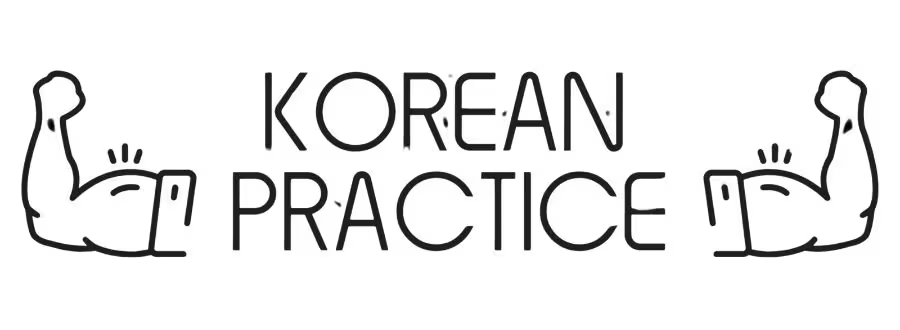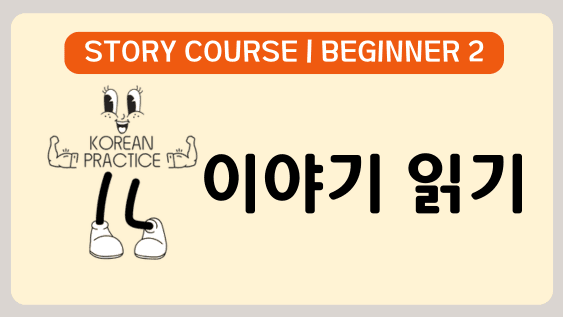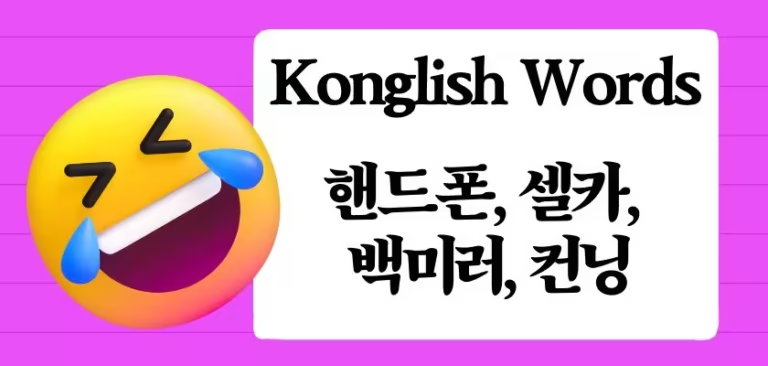Daebak (대박) means “amazing,” “awesome,” or “wow!”
That’s the short answer.
But this one small word has a huge story behind it — from old Korean fishing villages to K-pop stages and viral TikTok moments.
Why do Koreans say “daebak!” so often?
Why do people write things like “heol daebak,” “jinjja daebak,” or “daebakida”?
If you’ve ever heard these and wondered what they mean — or when to use them — keep reading.

You’re about to learn:
- What 대박 really means in Korean culture
- The difference between heol daebak, jinjja daebak, wanjeon daebak, and more
- Fun real-life examples and expressions you can actually use
Let’s start with the true 대박 meaning — and why it’s one of the happiest words in Korean.
Follow These Steps
Step 1: Listen & Shadow
Follow the audio and speak along with the highlighted text.
Step 2: Check & Learn
Use the breakdowns to understand grammar, vocab, and meaning.
Step 3: Review Visually
Watch the reading practice video to reinforce the story.
Go Deeper
Get the full story and extra practice in the paid course.
STEP 1
Click the play button to try shadowing below.
Tip: For the best, distraction-free experience, switch to fullscreen mode while shadowing.
Table of Contents
STEP 2
What Does “Daebak” Mean?
The word 대박 (daebak) literally means “jackpot” or “big win.”
It comes from old Korean gambling or fishing terms.
When someone caught a lot of fish or made a huge profit, they would shout “대박이다!” (Daebakida!), meaning “It’s a jackpot!” or “That’s amazing!”
Today, Koreans don’t use it only for money or luck — they use it anytime something is awesome, surprising, or unbelievable.
So, 대박 meaning in modern Korean is:
“That’s awesome!” / “Wow!” / “No way!” / “That’s amazing!”
You can say it when you see something cool, hear exciting news, or are just surprised.
Example Sentences:
Original Korean Sentence
와, 이 노래 진짜 대박이야!
Pronunciation Guide
와 (wa), 이 (i) 노래 (no-rae) 진짜 (jin-jja) 대박이야 (dae-ba-gi-ya)!
Meaning and Context
와 (wow), 이 (this) 노래 (song) 진짜 (really) 대박 (amazing) 이야 (is; I’m telling you casually).
English Translation
Wow, this song is really amazing!
The History and Background of “Daebak”
The word 대박 (daebak) originally appeared in traditional markets and gambling.
In old Korea, fishermen or merchants used it to describe a huge catch or great business success.
If someone made a lot of money in one day, people would say:
“오늘 대박 났다!” (I hit the jackpot today!)
That’s how it started — a lucky, successful event.
But over time, Korean pop culture changed the meaning.
In modern K-pop, K-dramas, and daily conversation, daebak means anything exciting or impressive, not just money.
So when you say “daebak,” you’re using a word that connects Korean tradition with modern pop culture.
Different Ways Koreans Use “Daebak”
Let’s look at different versions and expressions you’ll hear — and what each one means.
1. Daebakida (대박이다) Meaning
When you add –이다 (-ida) to the word, it becomes 대박이다 (daebakida) — a complete sentence.
It means “It’s amazing!” or “That’s awesome!”
You can say it when you’re shocked or super happy about something.
Examples:
- 이 영화 대박이다!
(This movie is amazing!) - 네가 직접 만들었어? 대박이다!
(You made it yourself? That’s awesome!)
So if you hear “Daebakida!” shouted loudly, it means the person is super impressed!
Example Sentences:
Original Korean Sentence
이 영화 대박이다!
Pronunciation Guide
이 (i) 영화 (yeong-hwa) 대박 (dae-bak) 이다 (i-da)!
Meaning and Context
이 (this) 영화 (movie) 대박 (awesome / a big hit) 이다 (is; wow)!
English Translation
This movie is awesome!
Heol Daebak 헐 대박 Meaning
The word 헐 (heol) is another fun Korean slang word.
It means “Oh my gosh,” “No way,” or “What?!” — it shows surprise or disbelief.
When you combine it with daebak, you get a double reaction like:
“헐 대박!” (Heol daebak!) — “OMG, that’s crazy amazing!”
It’s something you might say when something unbelievable happens.
Examples:
- 헐 대박, 진짜 그 배우 만났어?
(Oh my gosh, you really met that actor?) - 헐 대박, 네가 한국어를 다 알아듣네!
(Wow, you can understand all the Korean!)
It’s often used online in chats, memes, or social media comments.
Jinjja Daebak 진짜 대박 Meaning
진짜 (jinjja) means “really” or “truly.”
So 진짜 대박 means “really awesome” or “so amazing.”
It adds extra emotion and makes your reaction stronger.
Examples:
- 이 노래 진짜 대박이야!
(This song is really amazing!) - 진짜 대박 선물 받았어!
(I got such an amazing gift!)
If someone says jinjja daebak, they are really impressed or surprised.
Example Sentences:
Original Korean Sentence
진짜 대박 선물 받았어!
Pronunciation Guide
진짜 (jin-jja) 대박 (dae-bak) 선물 (seon-mul) 받았어 (ba-dat-sseo)!
Meaning and Context
진짜 (really) 대박 (amazing) 선물 (gift) 받 (to receive) 았 (past tense) 어 (I am telling you casually)!
English Translation
I got an amazing gift!
Literal Translation
(I) received amazing gift!
✍️ Related: 먹다 Meaning in English with 10 Examples
Wanjeon Daebak 완전 대박 Meaning
완전 (wanjeon) means “completely” or “totally.”
So 완전 대박 means “totally awesome” or “super amazing.”
It’s like saying “That’s totally cool!” in English.
Koreans use it to express excitement or when something exceeds expectations.
Examples:
- 완전 대박 맛있어!
(It’s totally delicious!) - 그 콘서트 완전 대박이었어!
(The concert was totally awesome!)
“완전 대박” is very common among younger Koreans, especially in social media and texting.
Daebak Sageon 대박 사건 Meaning
사건 (sageon) means “incident” or “event.”
So 대박 사건 (daebak sageon) means “amazing event” or “big news.”
It’s used when something shocking, funny, or exciting happens — often in a playful way.
Examples:
- 대박 사건! 우리 선생님이 TV에 나왔어!
(Big news! Our teacher was on TV!) - 대박 사건, 오늘 학교 안 간대!
(Amazing event — no school today!)
You might see #대박사건 as a trending hashtag on Korean Twitter or Instagram.
Example Sentences:
Original Korean Sentence
대박 사건! 우리 선생님이 TV에 나왔어!
Pronunciation Guide
대박 (dae-bak) 사건 (sa-geon)! 우리 (u-ri) 선생님이 (seon-saeng-nim-i) TV에 (ti-bi-e) 나왔어 (na-wat-sseo)!
Meaning and Context
대박 (amazing, unbelievable) 사건 (incident, event)! 우리 (our, my) 선생님 (teacher) 이 (my subject is my teacher) TV (TV) 에 (on) 나왔어 (appeared)!
English Translation
Unbelievable event! My teacher appeared on TV!
Literal Translation
Unbelievable event! Our teacher appeared on TV!
✍️ Related: Korean Terms for Family You Already Know from K-Dramas (But Don’t Fully Understand
Daebak in Real Life Conversations
Here’s how daebak appears in real Korean conversations.
Example 1:
A: 나 내일 한국 가!
(I’m going to Korea tomorrow!)
B: 대박이다! 너무 부럽다!
(That’s awesome! I’m so jealous!)
Example 2:
A: 우리 팀 우승했어!
(Our team won!)
B: 헐 대박! 진짜 축하해!
(OMG, that’s amazing! Congratulations!)
As you can see, daebak can show surprise, excitement, or happiness — all in one word!
Daebak in K-pop and Korean TV
You’ll hear daebak all the time in K-pop songs, K-dramas, and variety shows.
When a singer performs well or something funny happens on TV, people say:
“와, 대박이다!” (Wow, that’s awesome!)
Even Korean idols use it often.
For example:
- When a fan surprises a K-pop idol with a big gift, the idol might say “대박! 고마워요!” (Daebak! Thank you!)
- In Korean reality shows, when someone gets lucky or wins something, the hosts often shout “오늘 대박이야!” (It’s a jackpot today!)
So, daebak isn’t just a word — it’s part of Korean pop culture and emotion.
✍️ Related: Nature in Korean: 19 Beautiful Korean Words You Should Know
The Culture Behind “대박 meaning”
Why do Koreans use daebak so much?
It’s because Korean culture loves expressing emotion in a strong, short way.
Words like 헐 (heol), 진짜 (jinjja), and 대박 (daebak) show excitement quickly and clearly.
When something surprising happens, Koreans don’t just say “Oh.”
They say “대박!” with energy and emotion.
In Korean society, where politeness and modesty are important, slang words like daebak give people a fun and casual way to express feelings.
It’s friendly, youthful, and full of positive energy.
Other Words Related to “대박 meaning”
Here are a few other Korean words that feel similar to “daebak.”
| Korean | Meaning | Use |
|---|---|---|
| 헐 (Heol) | “Oh my gosh!” | Shock or disbelief |
| 짱 (Jjang) | “The best!” or “Cool!” | Compliment |
| 쩐다 (Jjeonda) | “That’s insane!” or “Epic!” | Strong excitement |
| 레전드 (Lejeondeu) | “Legendary!” | Used for something unforgettable |
Examples:
- 이거 완전 짱이야! (This is the best!)
- 그 공연 진짜 레전드였어. (That performance was legendary.)
All these words, including 대박 meaning, show positive emotion and enthusiasm — something Koreans love to share.
✍️ Related: 12 Essential Korean Living Room Vocabulary and Phrases
Funny or Sarcastic Use of “Daebak”
Sometimes, 대박 meaning can be used sarcastically too!
For example, when something goes totally wrong, you can still say “daebak” with a joking tone.
Examples:
- 핸드폰 또 잃어버렸어.
(I lost my phone again.)
– 대박… 너 진짜 대단하다. (Wow… amazing… you’re unbelievable.)
(Sarcastic!) - 시험 망쳤어.
(I failed my exam.)
– 대박, 이번 주는 정말 대박이네. (Great… what a week.)
So the tone matters a lot.
If someone says it with a straight face, it might mean the opposite!
STEP 3
Watch this short story video to see 대박 meaning in action
FAQs (What You Might Still Wonder About)
Is “대박” a slang word or a formal word?
“대박” started as slang, but now almost everyone in Korea uses it—even on TV shows. It’s still casual, so don’t use it in very formal situations like talking to your boss or teacher.
When can I say “대박이다”?
You can say “대박이다” anytime you feel amazed. For example, if a friend gets 100 on a test or makes delicious food, you can say “대박이다!” It’s friendly and sounds natural in everyday Korean.
What’s the difference between “진짜 대박” and “완전 대박”?
Both mean “really awesome,” but “진짜 대박” sounds like “really amazing,” and “완전 대박” feels a bit stronger, like “totally awesome.” You can use both when you’re very excited about something.
Why do Koreans say “대박” so often in dramas and K-pop shows?
In K-dramas or K-pop interviews, “대박” is used to show strong emotion—like shock, happiness, or excitement. When a fan meets their idol, they might shout “대박!” because it feels spontaneous and fun. That’s why you’ll often hear it in Korean entertainment.
Can “대박” be used in a negative situation?
Yes! Even though “대박” usually means something great, Koreans sometimes use it sarcastically. For example, if something goes really wrong, someone might say “대박이다…” with a sigh, meaning “Oh no, that’s bad.” So, tone and facial expression are very important.
Do younger and older Koreans use “대박” differently?
Yes. Young people use it all the time, even in casual messages like “헐 대박ㅋㅋ.” Older people use it less, or only when something is truly surprising. For them, it still carries the feeling of a “big win” or “great success,” closer to its original meaning.
Final words
The word daebak is short, fun, and full of emotion.
It shows surprise, joy, excitement — and sometimes even sarcasm.
It started as a word for luck and success but became a symbol of modern Korean positivity and energy.
So next time you see something amazing — a new K-drama, a K-pop performance, or your friend’s cool photo —
don’t just say “Wow.”
Say “Daebak!”









